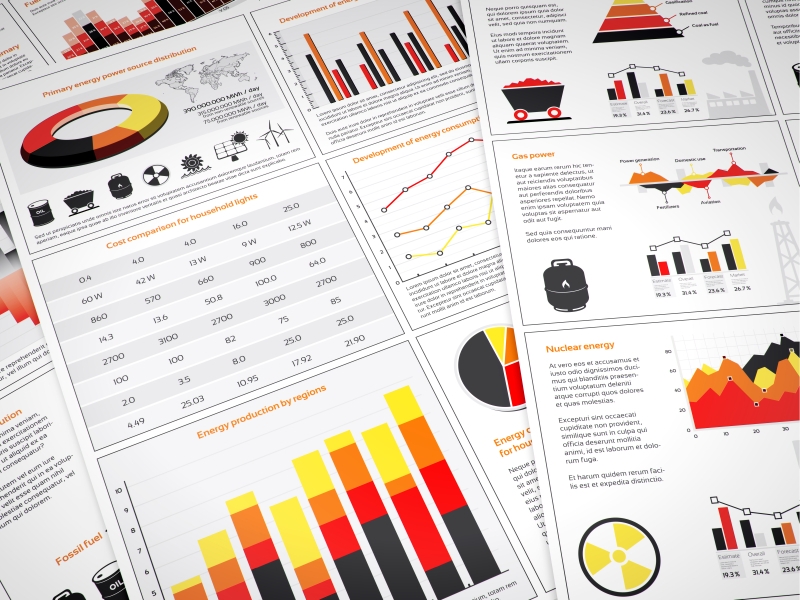 Infographics have been around forever. Yes, that’s an exaggeration, but it’s not that far off from the truth. If you really think about it, they’ve been around for tens of thousands of years. They’ve become modernized recently and are extremely popular. They work well for a number of reasons, primarily due to their accessible and visual-friendly incorporation of various graphs, charts and illustrated data.
Infographics have been around forever. Yes, that’s an exaggeration, but it’s not that far off from the truth. If you really think about it, they’ve been around for tens of thousands of years. They’ve become modernized recently and are extremely popular. They work well for a number of reasons, primarily due to their accessible and visual-friendly incorporation of various graphs, charts and illustrated data.
In addition to still serving well as a useful way to present data, infographics remain an integral part of effective content marketing. Infographics have an indisputable tendency to go viral, which is a great way to effectively promote services, a business or a specific set of data. They also have a substantial leg-up on boring, text-heavy approaches trying to get the same points across.
And yet, there are a lot of people out there who hate infographics. Why? Because more often than not they’re been completely misused, and tend to be poorly designed. Don’t let this hate scare you off from making one, though. Here are some areas to keep in mind when it comes to creating great infographics that work in your favor.
Infographics Tell Stories
One unique aspect of infographics is their potential to tell a story, one that can sympathize with the reader to get them on board with a particular sentiment or brand. Effective infographics have a specific concept that aligns with the infographics’ intent. For example, infographics showing the injury risks of playing football may follow a hypothetical player throughout his career, from pee-wee to retirement, as the risks for injury escalate. Showing scientific data along the way helps add some credibility as well.
Infographics also rely heavily on being effectively organized and consistent to get their points across. Ones that tell a story, use a visually striking style, apply clear marketing goals and execute these goals are more likely to go viral, or at the very least serve as useful content to their intended audience. The best infographics answer a question visually, without huge walls of text. The worst will make the user search all over the place to try and figure out what story is really being told.
Infographics Are Useful SEO Tools
As mentioned before, infographics have the great potential of going viral across social media outlets, since it is much easier to share images as opposed to lengthy blocks of text. Most re-posters will also link back to the infographics’ original source somewhere below the image, on it, or above it, resulting in a nice SEO-related boost for your business. Again, the better and easier to understand your infographic is, the chances of this happening have a better shot of increasing. If a person can’t understand your infographic, they’re not going to share it.
Infographics Spice Up Press Releases
There are so many press releases put out every day that it’s hard for a new business to stand out from the crowd. Separating from the pack is made much easier when using infographics alongside a press release. Content marketers promoting a new business or platform can align the content’s vision or intent with relevant infographics, so the potential and importance of the business is more evident to inquiring readers.
In infographics, comparative data can be particularly effective. For example, CJ Pony Parts just released this 2015 Mustang infographic, alongside a press release, which compares the muscle car’s impressive speeds to a Boeing 737 and a cheetah. It’s clean, clear, and highlights their product. Effectively integrating infographics and press releases, with useful comparative data like that may result in new clients and potentially even new investors.
Infographics Are Scientifically Proven to Work
According to Hubspot, 90% of information transmitted from the brain is visual. This means that infographics have a significant advantage when it comes to delivering content, meaning that the abundance of infographics shouldn’t be surprising. Similarly to how content in an infographic is easily ingested by readers, companies also incorporate their logo into infographics to provide a sense of familiarity the next time readers consider their business.
Considering that infographics provide a unique way to tell a story, offer many SEO and social media benefits, serve as useful press release add-ons and are scientifically proven to work, it’s easy to see why they are used as an effective tool in content marketing. Maybe one day holograms will be the most common way to illustrate data. For now, infographics remain king. Just make sure you do enough work to make your infographic stand out from the crowd.
Scott Huntington is a writer, blogger, and entrepreneur. Follow Scott at @SMHuntington